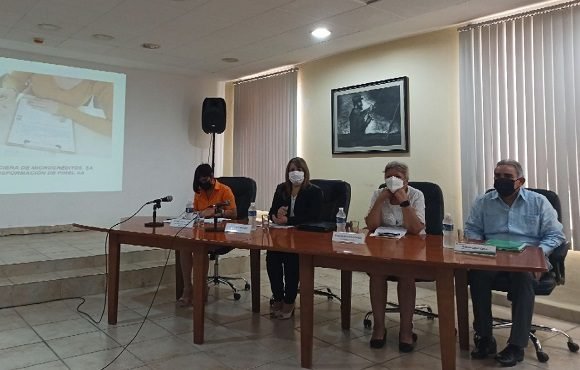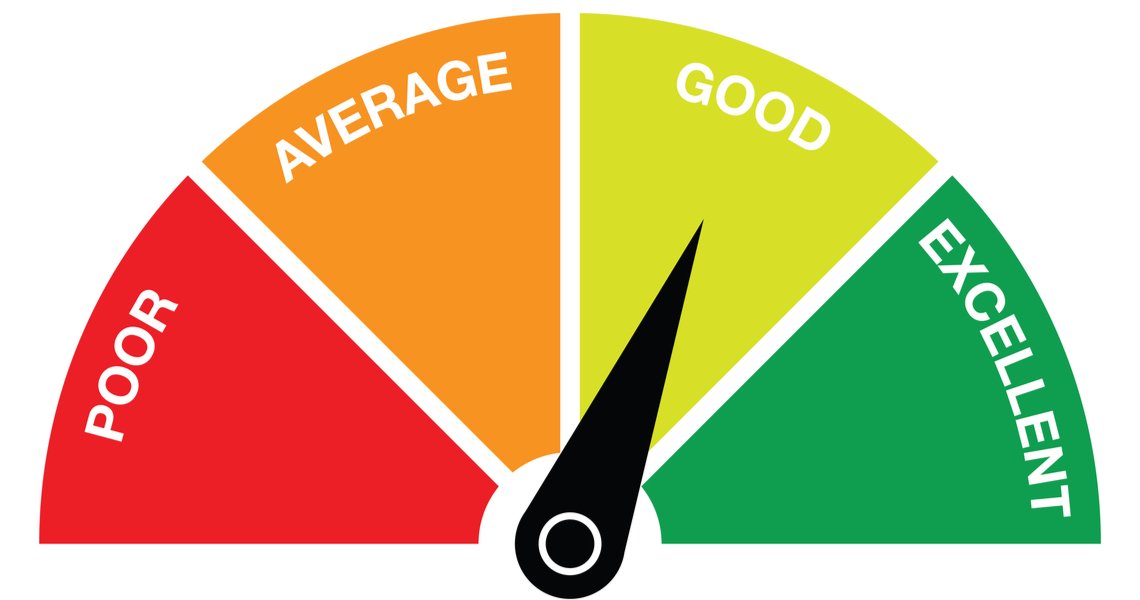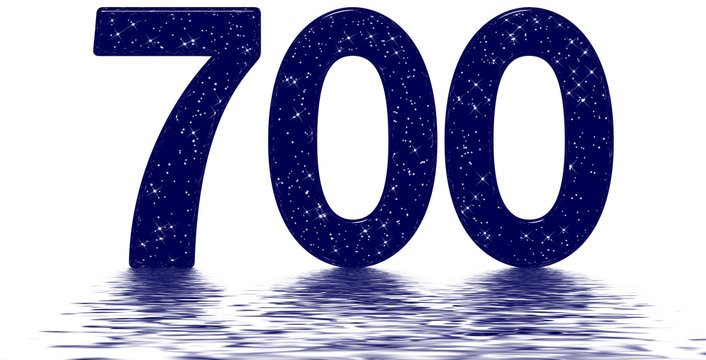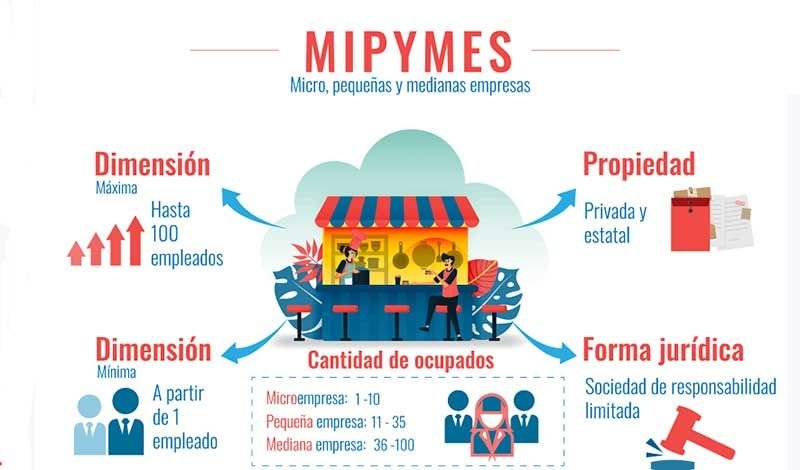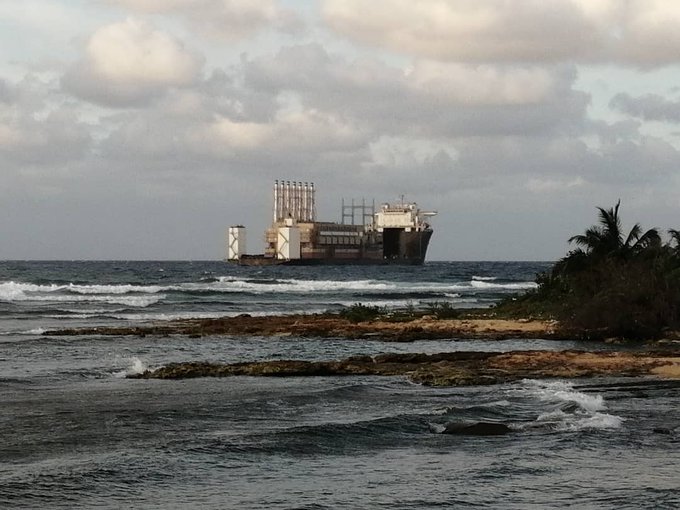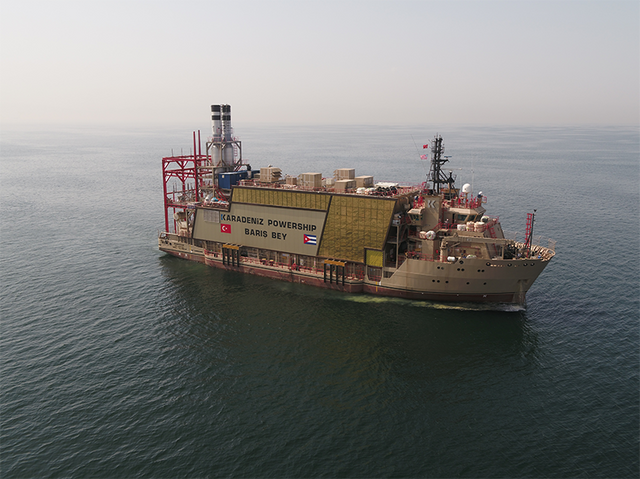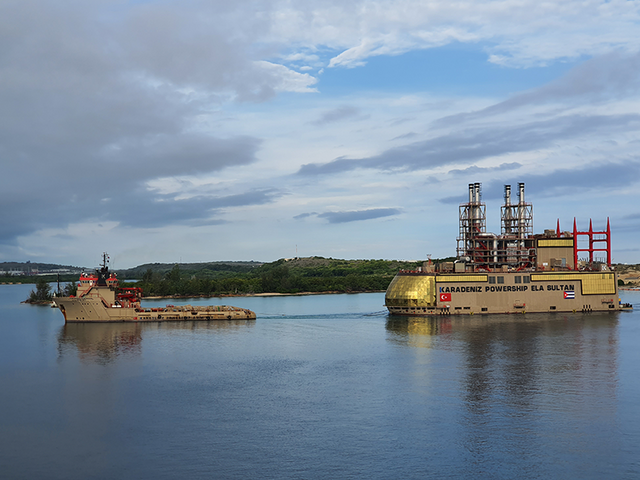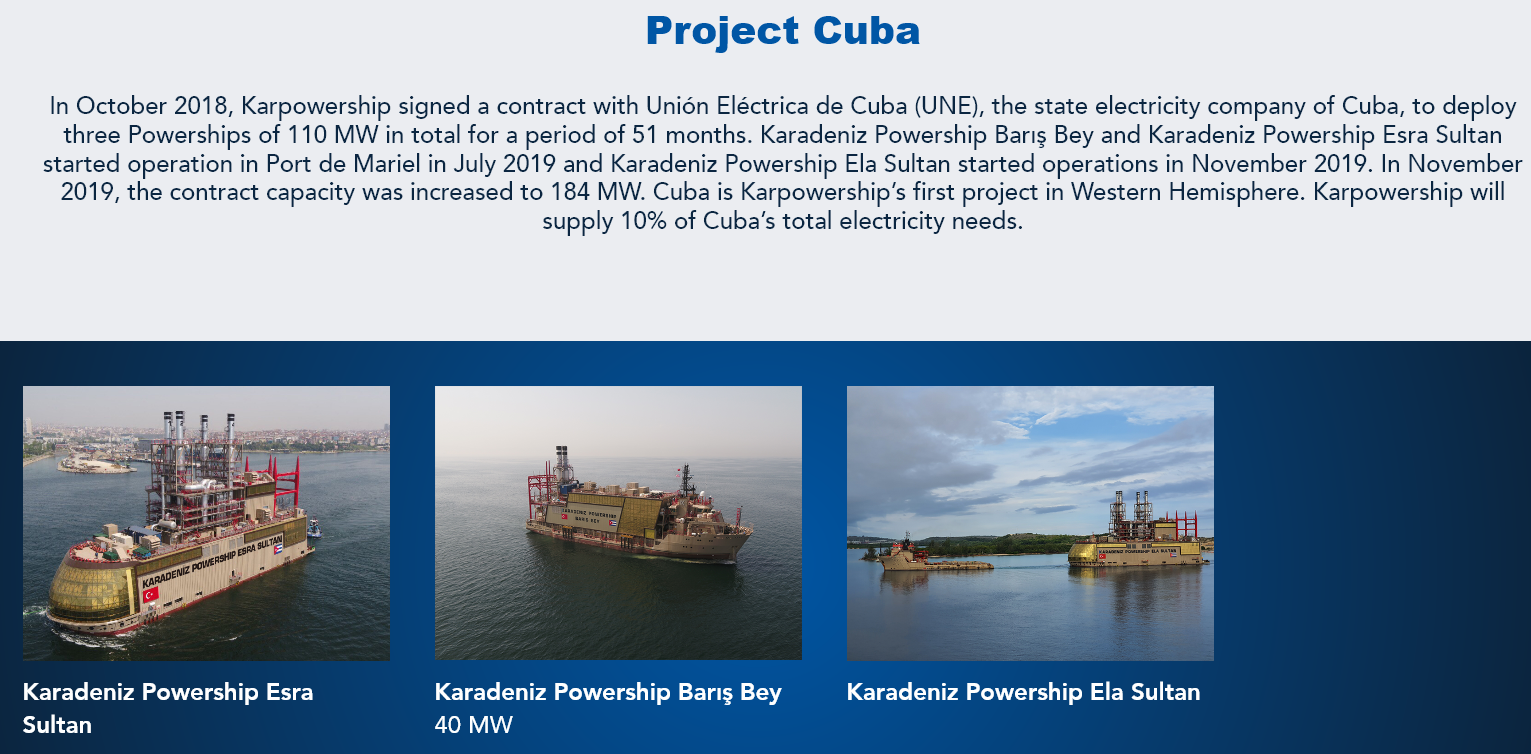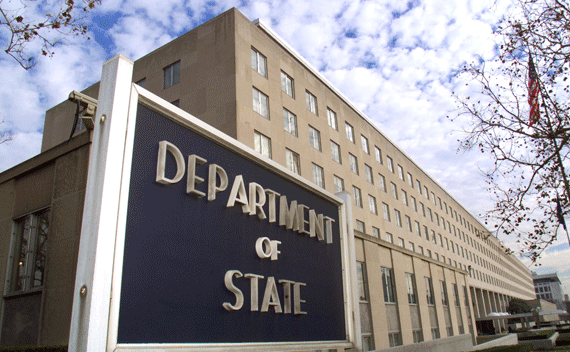OFAC & BIS To 107 Tech Companies? Cuba. Yes, You Can Go There, But We Dare You.
OFAC & BIS To Cuba’s 11.3 Million Citizens? Technology Is Great And Will Help You, And We Want You To Have It, But…
Encourage & Enable Are Not The Same As Access & Use
Self-Employed, Micro, Small And Medium-Sized Businesses In Cuba Need Access To Wireless Device Applications & Programs For Operations, Transactions, And Marketing
President Biden- “My Presidency… [Is] A Small Business Presidency” But Only For United States?
Memorandum To Messrs. Donilon, Klain, Ricchetti, Richmond, Sullivan... Looking For A “Win”
The Obama-Biden Administration (2009-2017), Trump-Pence Administration (2017-2021), and Biden-Harris Administration (2021- ) promoted during their days in office efforts to encourage and enable the 11.3 million citizens of the Republic of Cuba to access and use the Internet and obtain and use those devices, programs, and applications required for a robust “civil society” and re-emerging self-employed and micro, small, and medium-sized enterprises.
Members of the United States Congress- Democrats, Independents, and Republicans have also continuously weighed-in with speeches, remarks, media releases, hearings, and legislation in support of- and often further in front of efforts by each occupant of the Oval Office. The efforts have frequently been bi-partisan and tri-partisan.
Why then, have many of the largest United States-based companies whose technologies are essential as tools for individuals to connect, individuals to be heard, and for the self-employed (and owners/managers of micro, small and medium-sized enterprises) to resurrect their foundational role within commercial, economic, and political infrastructure of the Republic of Cuba opted, through self-restraint and self-policing, to deny their tools to those 11.3 million citizens who reside on the 800-mile-long archipelago which lies ninety-three miles south of Key West, Florida?
The answer: Regulatory whiplash. The management of the companies, specifically their legal counsel and their government affairs advisors are terrified that a decision taken in the morning viewed as inspired will by the afternoon be viewed by members of the United States Congress as a “betrayal of the Cuban people” and “support for Communism” and then as “not consistent with United States policy” by the Office of Foreign Assets Control (OFAC) of the United States Department of the Treasury and Bureau of Industry and Security (BIS) of the United States Department of Commerce. Within months could also arrive a notification that the company has been fined hundreds of thousands of dollars or millions of dollars.
Will the government of the Republic of Cuba benefit from the unrestricted use of Internet-based programs and applications? Yes, So what. What is critical- supporting the 11.3 million citizens of the Republic of Cuba or seeking to engage in whack amole with members of and supporters of the Diaz-Canel-Valdes-Mesa Administration (2019- )?
If The White House and members of the United States Congress want Republic of Cuba nationals to engage amongst themselves and with family, friends, acquaintances, colleagues, and commercial partners, then remove the OFAC and BIS restrictions upon the delivery of and use of each of the Internet-based programs and applications that are every minute of every day accessed by citizens of the United States.
Politicians voice their support for the re-emergence of the self-employed in the Republic of Cuba and for those Republic of Cuba nationals who have braved enormous obstacles to create, nurture, and sustain micro, small, and medium-sized enterprises. These efforts require the unfettered access to and use of Internet-based programs and applications.
Critical is for the OFAC and BIS to be concise in their regulatory and policy guidance. In the public sector, often sought is language that is imprecise so that it may be interpreted and re-interpreted at will. In the private sector, precision is necessary for legal counsel and government affairs advisors.
If the Biden-Harris Administration and members of the United States Congress want a robust Internet-based landscape in the Republic of Cuba, then the decision must be to go all-in rather than focus upon seeking how to craft language that deters rather than fosters engagement.
It is in-or-out.
The Honorable Joseph Biden (22 November 2021): “Economists will tell you that an increase in new businesses is one of the best signs of an economy -- an economy that is becoming more innovative and more dynamic. And that’s because small businesses aren’t just the heart and soul of America, they’re not just the bedrock of so many communities across this country -- America’s small businesses are the primary job creators, innovators, and drivers that power our economic progress. That’s why it’s a powerful statement about -- of the faith about -- that we have in our country -- where our country and our economy is heading that small business creation is surging -- surging in America today. Which is why I’m proud to say: If you look at my presidency so far, it’s a jobs presidency and it’s a small business presidency.”
The Honorable Brian Nichols, Assistant Secretary of State for Western Hemisphere Affairs before United States House of Representatives Foreign Affairs Committee Subcommittee on the Western Hemisphere, Civilian Security, Migration and International Economic Policy (16 November 2021): “We will also continue to support increased exports of humanitarian goods to the Cuban people and to continue to work with the private sector and other stakeholders to identify viable options to ensure greater internet access for the Cuban people.”
The Honorable Marco Rubio (R- Florida), United States Senate (16 November 2021): “And I don't expect a lot, frankly, when the person [The Honorable Emily Mendrala, Deputy Assistant Secretary of State, Bureau of Western Hemisphere Affairs] in charge of the Cuba portfolio in the State Department just a year and a half ago was organizing trips for members of Congress to meet with the regime. I don't expect a lot when the people [The Honorable Juan Gonzalez, Special Assistant to the President and Senior Director for Western Hemisphere Affairs] at the National Security Council who are involved in the Cuba portfolio are people who are deeply involved in negotiating a failed deal with the regime. The fact of the matter is, the people in charge of this on an hourly basis in this administration are not on the side of what we’re asking for. What they want is an understanding and an agreement with this evil regime. So I’m not expecting a lot, unless the President himself makes it a priority, which so far he has not.”
The primary decision-makers at The White House are The Honorable Ronald Klain, Assistant to the President and Chief of Staff; The Honorable Jake Sullivan, Assistant to the President for National Security Affairs; The Honorable Michael Donilon, Assistant to the President & Senior Advisor to the President; The Honorable Steven Ricchetti, Assistant to the President & Counselor to the President; and The Honorable Cedric Richmond, Assistant to the President & Director of the Office of Public Engagement. With respect to issues relating to the Republic of Cuba, they must view the implementation of any decision in terms of the degree of “winning” rather than degree of “losing.”
The definition of success by the Biden-Harris Administration and members of the United States Congress must be changed from “see what we permitted, now try to figure out how to use it- because we really don’t want you to use it primarily because we don’t understand it and are afraid we might not be able to control it and then will be criticized for permitting it in the first place” to “you have developed a technology that has become ubiquitous in that it is essential for a democracy and market-based economy to develop and thrive- please now unleash those capabilities throughout the world. If you have an issue, let us know and we will help you or get out of the way.”
LINKS To Republic Of Cuba-Google-Related Posts
Google Global Cache Operational In Cuba... Despite No Details From The Company April 27, 2017
Google's Lack Of Transparency Harms US-Cuba Commercial Relationship December 14, 2016
Google Expands Presence In Cuba- No Payment By Cuba December 12, 2016
Google To Support Chrome Cuba-Focused Developers October 17, 2016
Google Opens Technology Center In Havana... High Speed Internet For 40 At A Time April 05, 2016
United States Department of the Treasury
Washington DC
11 August 2021
“…OFAC and BIS are issuing this fact sheet to emphasize the U.S. government’s commitment to promoting the ability of the Cuban people to seek, receive, and impart information, by highlighting the most relevant exemptions and authorizations pertinent to supporting the Cuban people through the provision of certain internet and related telecommunications services.” LINK To Complete Document In PDF Format LINK To Part 515- Cuban Assets Control Regulations (CACR)
Time Magazine (19 November 2021): “While there are exceptions for some telecommunications services that expand actual Internet access on the island and “directly benefit the Cuban people,” according to the U.S. Treasury Department’s Office of Foreign Assets Control (OFAC), this does not include most web services, which would only be able to provide services to Cuba under a special license. Confusion over how to interpret these regulations has led many U.S. platforms and companies to abruptly pull their services in recent years, rather than risk violating the embargo.”
Time Magazine (19 November 2021): “There are at least 107 popular tech sites, software and web services restricted from being used in Cuba, according to a compilation by Cuban programmers on Github, a site for sharing code. These services list restrictions on users in Cuba, Iran, North Korea and Syria on their websites, citing U.S. law.”
Some Of The 107 Companies And Their Applications Self-Restricted For Use In The Republic Of Cuba
Adobe
Android Developers
Apple App Store
Apple iCloud
Bitly
Coursera
Gitlab
Google Cloud
Google Developers
Google Drive
Google One
Google Play
Google Project Shield
IBM Software
Intel
Java
MailChimp
Microsoft Teams
OpenSea
Oracle
PayPal
VPN
WeTransfer
Zoom
LINK TO COMPLETE ANALYSIS IN PDF FORMAT
LINKS To Relevant Analyses
Update On Registration Of Micro, Small & Medium-Size Enterprises In Cuba. Now More Than 600. November 21, 2021
Cuba Continues To Report On Activity Of MSME's- The Numbers Increase. November 06, 2021
Joint Venture Between Banco de Sabadell Of Spain And Banco International de Comercio In Cuba Will Provide Financing In Foreign Currency To MSMEs & Non-Agricultural Cooperatives November 05, 2021
Bormey srl Among The First 35 Newly-Constituted Medium-Sized Enterprises In Cuba, Exported 5,000 Peanut Bars To Italy. Is United States Next? U.S. Department Of State Regulations Would Approve. October 26, 2021
ProLimp Cleaning In Cuba Precisely Type Of Entrepreneurship Biden Administration Should Support. Will Cuba Permit U.S. Venture Capitalists? March 08, 2021
Time Magazine
New York, New York
19 November 2021
‘Give Us a Break!’ Cuban Activists Say U.S. Sanctions Are Blocking Them from Online Services
A woman surfs the Internet at a public WiFi spot in the district of Marianao in Havana.
Isaac Risco—picture-alliance/dpa/AP
By Vera Bergengruen
On Nov. 9, Cuban journalist Elaine Diaz was trying to send out a newsletter to the subscribers of Periodismo de Barrio, her watchdog news site covering human rights issues on the island, when she got an error message on her screen. The U.S.-based service she had been using, MailChimp, had suddenly and unexpectedly eliminated her account. “They did it without prior warning, for being based in Cuba,” she wrote on Twitter. “It’s not the first Cuban outlet to go through this experience. Shameful.”
As Internet access has exploded on the island, an increasing number of Cuban journalists, activists, dissidents and artists find themselves locked out of the online platforms and services used by the rest of the world—not by their communist government, but due to restrictions imposed on American companies by the broad, 60-year-old U.S. embargo. In recent years, they have been abruptly blocked from cloud services, file transfer sites, social media managers, editing software, development apps, video calling, free education platforms and NFT marketplaces. It not only shuts them out of the global digital economy, several young Cubans tell TIME, it also makes it harder to create content and reach a wider audience.
The restrictions come on top of the Cuban government’s own tight grip on Internet access for its citizens through the state-owned telecommunications monopoly, ETECSA, which blocks news websites deemed critical of the regime. The agency also restricted access to social media platforms in the wake of historic protests over food and medicine shortages in July, with some calling on President Miguel Diaz-Canel to step down. The two factors have combined to hit the heart of Cuba’s protest movement. The summer protests, as well as the San Isidro demonstrations that preceded it last year, were spearheaded by young artists who rely on digital platforms to disseminate information and express and organize themselves online. As a result, the blunt instrument of the decades-old embargo is inadvertently stifling the very freedom of expression and robust civil society that the U.S. government seeks to support in Cuba, experts say, as U.S. companies try to avoid running afoul of the law.
A group of young intellectuals and artists demonstrate at the doors of the Ministry of Culture during a protest in Havana in November 2020. Some two hundred young artists are calling for "a dialogue" with the Ministry of Culture in Havana after the police broke up a 10-day protest by the San Isidro Movement (MSI) claiming the risk of epidemiological contagion. Yamil Lage—AFP/Getty Images
“It’s a classic case of our own sanctions boomeranging and biting us in the ass,” says Ted Henken, a professor of Latin American studies at Baruch College who has written a book on Cuba’s digital revolution. “The embargo is so ill-targeted and its enforcers know little about the island’s emergent digital civil society.”
Although Mailchimp ultimately reinstated Diaz’ account after she went public, that was a rare exception, according to Cuban artists and activists who spoke to TIME. (A Mailchimp spokesman told TIME the service “operates in compliance with all applicable laws and regulations” but did not clarify how Diaz’ circumstances changed.) There are at least 107 popular tech sites, software and web services restricted from being used in Cuba, according to a compilation by Cuban programmers on Github, a site for sharing code. These services list restrictions on users in Cuba, Iran, North Korea and Syria on their websites, citing U.S. law. “As time goes by, more and more websites and services are being blocked for Cubans,” says Gabriel Guerra Bianchi, a Havana photographer and artist. Like many Cuban artists and activists who had started to build a community around digital art, he was frustrated when OpenSea, a popular website for selling digital items, blocked Cuban users in May citing the embargo, locking them out of one of the largest marketplaces for non-fungible tokens (NFTs).
“Sometimes one doesn’t even know where these [blocks] are coming from—whether from here or from there,” Bianchi said. He says he doesn’t blame services like OpenSea, which he said expressed regret to their community of Cuban users. “It’s not out of bad faith from these companies, but rather it seems to be part of their security protocols to avoid future problems with the U.S. State Department.”
Cubans have lived with the impact of the U.S. embargo for generations. President John F. Kennedy imposed a near-total trade embargo on the country in 1962 after Washington’s failed attempt to overthrow Fidel Castro, citing “the subversive offensive of Sino-Soviet Communism” the regime was aligned with. As a result, Cuba, which depended heavily on trade with the U.S., became reliant on the Soviet Union, and later Venezuela, for economic and military aid. But the embargo’s restrictions on U.S.-based services have gained new urgency as web access has expanded to more Cubans. Internet usage in Cuba grew dramatically in the wake of the historic détente in 2014, when President Barack Obama and Raul Castro agreed to re-establish diplomatic relations, leading to the easing of many restrictions on business with and travel to Cuba, as well as an influx of U.S. dollars. Although Cuba only allowed full Internet access on mobile phones in 2018, more than four million citizens on the island—over a third of the population—now access the web on their smartphones.
Cubans connecting to the internet using cellphones at a Wi-Fi hot spot in a square on the outskirts of Havana in March 2016. A mobilization of protesters in the Cuban capital in November 2020, was a rare instance of Cubans openly confronting their government -- and a stark example of how having widespread access to the internet through cellphones is testing the power balance between the Cuban regime and its citizens. Mauricio Lima—The New York Times/Redux
The relationship between the two countries deteriorated again under Trump, who promised to reverse Obama’s measures and toughened the embargo by imposing over 240 sanctions during his four years in office. President Joe Biden, despite vowing during his presidential campaign that he would restore Obama-era policies of engaging with the Cuban regime, so far has not moved to ease the restrictions.
The complicated web of regulations, trade restrictions and sanctions that comprise the embargo forbid U.S. companies from providing any type of service to Cuba. While there are exceptions for some telecommunications services that expand actual Internet access on the island and “directly benefit the Cuban people,” according to the U.S. Treasury Department’s Office of Foreign Assets Control (OFAC), this does not include most web services, which would only be able to provide services to Cuba under a special license. Confusion over how to interpret these regulations has led many U.S. platforms and companies to abruptly pull their services in recent years, rather than risk violating the embargo.
Access has been tightening for years. In 2014, Coursera, a California-based online education platform that offers free classes, suddenly blocked users from Cuba as well as other sanctioned countries from logging into their accounts. The company said in a statement at the time that while export control regulations for educational services had “been unclear,” they had received information from the State Department and OFAC that allowing users in these countries to access their services was in violation of U.S. law. Similarly, link-shortening website Bitly suddenly stopped working for Cuban users in 2016, leading to a wave of broken links across Cuban websites.
In 2017, Cuban human rights activist Rosa María Payá saw an error message for her website “Cuba Decide,” an initiative calling for a national plebiscite on free elections. She found that the site had been blocked not by the communist government but because it was using Google’s Project Shield, a DDoS protection service that works with journalists, human rights organizations and elections monitoring sites. In a tweet, Payá called it “the error with which Google joins censorship in Cuba.” Google said at the time the site was being blocked due to compliance with the U.S. embargo. “I would like to know what provision of the embargo forces Google to block an initiative to promote freedom of expression?” Payá asked the Miami Herald.
Four years later, the list of web services used to create and disseminate content and organize online communities has only grown—and with it, the sudden errors that Cuban users encounter. Google blocks access in Cuba to a variety of services that might run afoul of the embargo, such as Google Cloud, Google Developers, Google One and Google Play, according to the list compiled by Cuban programmers. Some of the other apps that are blocked are Adobe, Android Developers, Gitlab, IBM software, Intel, Java, Oracle, Zoom, and a host of payment apps that are necessary to participate in much of the digital world.
PayPal, for instance, which will allow transactions that mention the words “bomb” or “cocaine,” will block any transaction with the word ‘Cuba’ in it. (When a TIME reporter tried to send another user in the U.S. $1 with the note “Cuba Libre” on Nov. 17, PayPal immediately restricted their account and put the transaction under review.) Paypal’s terms of service note that its services may not be used by residents or nationals of “any country subject to United States embargo or UN Sanctions.”
Screenshots of web services that have been blocked for Cuban users, from left: OpenSea, VPN access, and CubaDecide. From left: Courtesy Gabriel Guerra Bianchi; Courtesy Rubén Martínez Rojas; Courtesy Rosa María Payá
One day last June, Claudio Pelaez Sordo, a Cuban photo and video-journalist who works for independent news outlets, woke up to find himself no longer able to access WeTransfer, a file transfer service that had become indispensable among many Cuban artists and content creators. Unlike Google Drive, it didn’t require users to register for an account, and allowed them to send files up to 2 GB.
“The U.S. government prohibits the provision of certain products and services to specific countries. What this means is that regrettably we are unable to provide our services to you,” the error message read. Although headquartered in Amsterdam has offices in New York and Los Angeles. WeTransfer did not respond to TIME’s request for comment. “This adds itself to the long list of sites and platforms that [we] can’t access as part of the economic blockade against Cuba,” Pelaez Sordo posted on Facebook on June 10. But “if there’s something the Cuban government has taught us, it’s how to always find a way around it,” he wrote, adding the hashtag #righttolivewithoutblockade.
Young Cubans have increasingly relied on VPNs to work around these restrictions, in order to access everything from news websites blocked by the Cuban government to online services and apps blocked by U.S. sanctions. But low-cost VPNs tend to work slowly, according to people who spoke to TIME, forcing Cubans to spend their money on expensive ones if they want to access or use services that are free to access in the rest of the world. This has especially frustrated some young artists as Havana has become an unlikely hotspot for crypto art in recent months. Cuban artists have launched several art collections through NFTs, which not only open up new sources of income in their devastated economy but serve as outlets of protest and expression.
“Oh come on!!!! Really!??” tweeted Bianchi, the Havana photographer and artist, when OpenSea blocked him in May. “Cuban artists can’t have access. We are creators! Give us a break!” (An OpenSea spokesman acknowledged to TIME the service had been blocked for Cuban users due to the U.S. sanctions). When sympathetic followers from around the world suggested VPNs to bypass the block, Bianchi explained the reality: even many slow, cheap ones are out of reach for many Cubans. “This $10 dollars a month is a 10-day salary in Cuba,” he replied on Twitter. “Not only that, we don’t have credit cards in Cuba to pay, or bank accounts.”
Men hang Cuban flags over the windows of Yunior Garcia Aguilera's home in an attempt to stop him from communicating with the outside on Nov. 14, 2021. García is a playwright and leader of Archipelago, a Cuban opposition group. Ramon Espinosa—AP
The complicated web of U.S. trade restrictions under the embargo, as well as the whiplash of the recent opening and closing of U.S.-Cuba relations during the Obama and Trump administrations, has deterred American companies and platforms from trying to find a way to operate in Cuba, experts say. “I’ve worked with a lot of clients over the years who take a very conservative approach and decide they don’t want to run that risk,” says Doreen Edelman, a partner at Lowenstein Sandler who chairs their global trade and policy practice, adding that this is especially true for the start-ups who run many of these services. “They’re not going to want to pay for legal fees for stuff like this, so they’ll just follow the embargo and be done with it.”
But while the blanket Cuba embargo dates back 60 years, the U.S. Treasury Department’s Office of Foreign Assets Control has recently been “much more surgical” in its approach to sanctions, says Laura Fraedrich, senior counsel at Lowenstein Sandler’s global trade and policy team. She points to sanctions against certain people and specific activities in countries like Russia and Venezuela. “It’s targeted at people who are in or have been in the government, and you really wonder why we couldn’t go to something like that for Cuba to mitigate some of these secondary and tertiary effects.”
Unsurprisingly, the Cuban government has used the blocking of these services as part of their broader criticism of the U.S. embargo. In a report to the U.N. Secretary-General last year, it outlined how the embargo’s impact on online communications had resulted in Cuban representatives having trouble accessing or participating in virtual U.N. meetings related to the COVID-19 pandemic, since digital platforms like Zoom and Microsoft Teams are restricted in Cuba. (The State Department referred questions to OFAC, which did not respond to TIME’s request for comment.)
It’s a rare point of agreement between the communist regime and some young Cubans. “Solidarity or just appearances?” Rubén Martínez Rojas, who lives in Havana, wrote in a Facebook post in August. “It would be interesting to know how it is possible that the U.S. is so interested in a free access internet for Cubans but prevents us from accessing digital platforms such as WeTransfer, OpenSea, Adobe and dozens of others that are accessed by the rest of the world, adding obstacles to our human development.”
A group of young activists and artists hold up lights on their mobile phones as they demonstrate at the doors of the Ministry of Culture in Havana in November 2020. Yamil Lage—AFP/Getty Images
Though a group of Republican politicians, including Florida’s Gov. Ron DeSantis and Sen. Marco Rubio, have been clamoring for the Biden Administration to do more to facilitate Internet access in Cuba to promote democratic values on the island, Rojas pointed out that goal is at direct odds with the impact of the embargo. The U.S. restrictions are preventing Cubans from creating iCloud accounts or installing applications from the App Store, necessary for anyone wanting to use an iPhone, forcing them to pay for expensive workarounds, he wrote. “No U.S. senator is worried about resolving these issues caused by this decades-long blockade which affect every inhabitant of Cuba.”
Lawmakers who have called for expanded Internet access for Cuba placed the blame squarely on the Cuban government. “The U.S. sanctions specifically do not apply to telecommunication,” a Rubio spokesperson told TIME. “It is the regime that is blocking access to it and reporting otherwise is to parrot their propaganda.” His office did not respond to the fact that many of the services in question cite the embargo as the reason for their restricting service to Cuba.
Both U.S. technology policy towards Cuba and the general policy under the embargo are beset by the same internal contradictions, says Henken, the professor at Baruch College. While their aim is to isolate or target the Cuban government, they often impact the people they are designed to support and empower, working against U.S. interests in the country, he says. “The irony is that the same U.S. politicos that support granting free and uncensored access to the internet for the Cuban people also support an embargo which puts those connections in legal and financial jeopardy,” he says.
He cites the example of Cuban opposition group Archipelago, which was behind an attempted Nov. 15 protest and relies on online activists. The November demonstrations were largely suppressed by the government, but could have easily been affected by the U.S. embargo, he says. “Just imagine if a group like Archipelago would have had one of its essential social media accounts canceled right during the planned protest, due not to the Cuban regime’s internal blockade on the free flow of information but due to the ham-handed and woefully imprecise U.S. embargo.”









